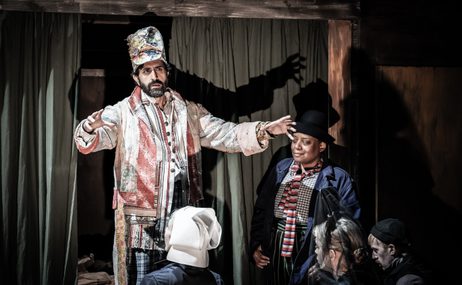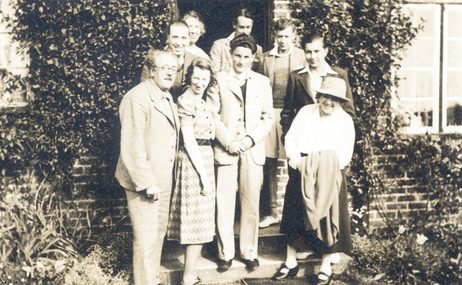Presented by Josh Hayward
Britten began learning the viola aged around 9 or 10 and composed a number of early pieces for it, including a sonata in 1926. In later life, however, the only piece that exists for solo viola is the beautiful Lachrymae where it is accompanied by piano. It was composed for the Scottish violist William Primrose, whom Britten encountered during a visit to the USA In 1949. The story goes that Britten promised Primrose a new piece, partly to persuade the player to perform at the Aldeburgh Festival, forgot all about it then composed it overnight following a telephone reminder from Primrose. Such haste is scarcely evident in this haunting and cleverly worked-out piece.
As Josh Hayward outlines in the film, the piece is a series of variations with the theme delivered at the end, rather than being heard first. As such, the variations hint at the main themes – an air by John Dowland – before it emerges in full. (Britten used the same technique several years later in his Nocturnal for solo guitar, also based on a Dowland air.)
The viola Josh is playing has its own story. Britten’s first composition teacher Frank Bridge gave it to him as he was leaving for the USA in 1939. Bridge was a fellow viola player, and in many ways Britten’s career followed in the footsteps of his mentor: composer, conductor, entrepreneur and active musician. We have been paying tribute to their relationship in a short recital series, Bridge & Britten, and all three concerts showcase the viola they shared. In a short film introducing the series, Josh Hayward discusses how moving it is to play on the instrument that inspired both composers: the way in which this human connection can bring you closer to the creators, and to the music itself.
Watch more

74th Aldeburgh Festival
09 – 25 June 2023
A Song at The Red House: 'Tell me the Truth About Love', by Benjamin Britten
Soprano Elise Caluwaerts performs one of Britten's cabaret songs, with a witty text by WH Auden. Accompanied by Lucy Walker on Britten's Steinway piano…
Work of the Week 24. Violin Concerto
Presented by Roger Wright
